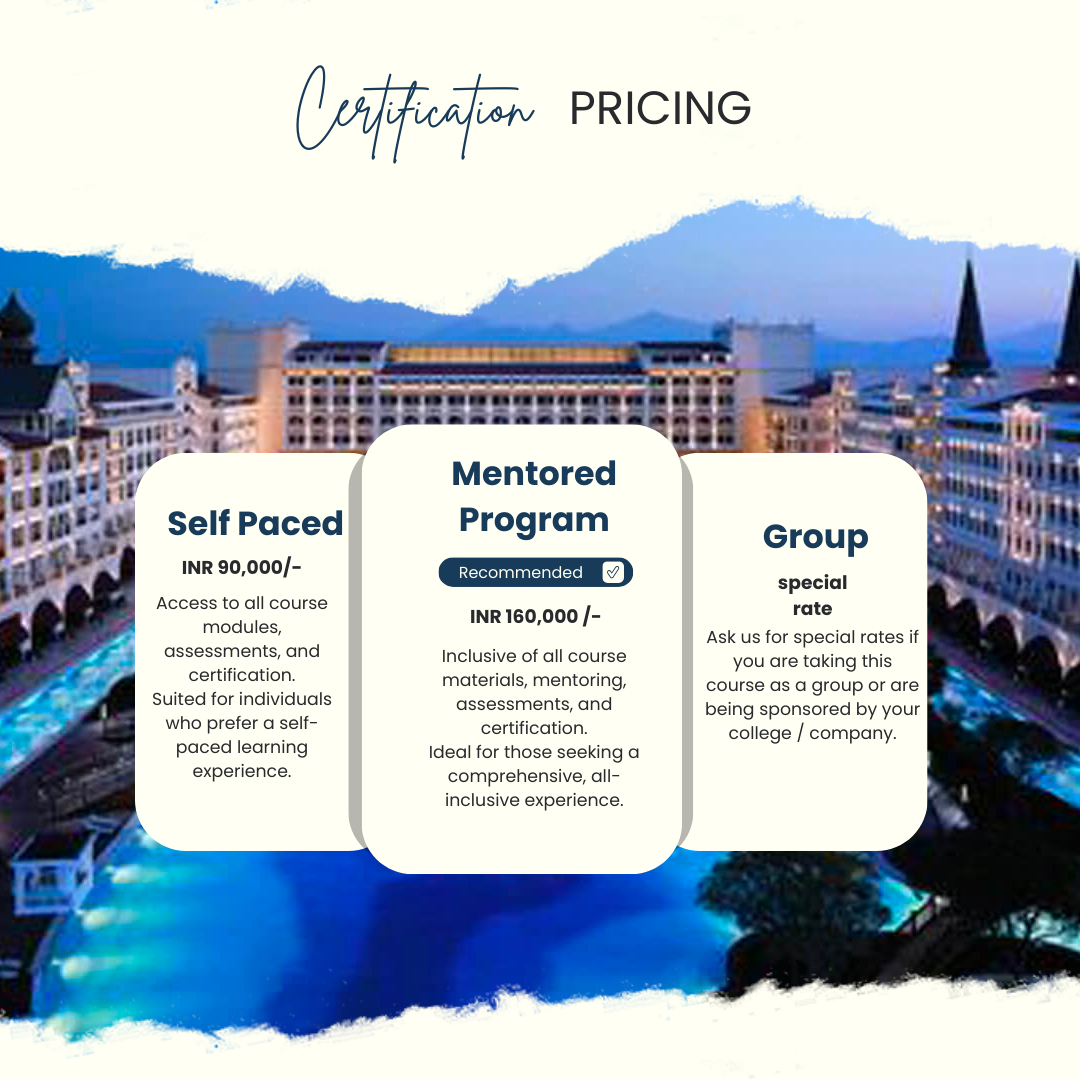Excellence in Hospitality Service Program
“To bring opportunity, knowledge & growth, to every hospitality professional in the world”
Duration: 6 Months (weekly learning schedule). Fast Track available.
Objective: To equip hospitality professionals with the skills and knowledge necessary to deliver exceptional service.
-
Understanding the significance of service excellence.
Historical perspective and evolution of hospitality service.
Role of service excellence in building a successful career
-
The importance of understanding and meeting guest expectations.
Effective communication and active listening skills.
Handling guest feedback and complaints.
-
Establishing and maintaining service standards.
Proper etiquette and grooming for hospitality professionals.
Adherence to safety and hygiene protocols.
-
Effective teamwork in a hospitality setting.
Leadership skills for guiding and motivating teams.
Conflict resolution and problem-solving within a team.
-
Recognizing and respecting cultural differences.
Creating an inclusive and welcoming environment.
Handling diversity-related challenges.
-
Techniques for upselling services and amenities.
Maximizing revenue through exceptional service.
Cross-selling and promoting additional offerings.
-
Embracing technology for enhanced guest experiences.
Use of software and apps for reservations, check-ins, and more.
Data privacy and security in the digital age.
-
Understanding the importance of service recovery in hospitality.
Identifying common service failures and guest complaints.
Strategies for effective service recovery and guest satisfaction.
Role-play and real-life case studies on service recovery.
Developing a proactive approach to prevent service failures.
Measuring success through guest feedback and loyalty.
-
Crafting a long-term career plan in hospitality.
Building a professional network in the industry.
Resume building and interview preparation.
-
Participants work on a service improvement project.
Presentation and evaluation of project outcomes.
Graduation and certification.
-
Professional Development and Goal Setting.
Using Personal Productivity Tools & Techniques.
Time Management Strategies.
Stress Management and Well-being.
Blended Learning
also referred to as hybrid learning. Learning and instructional techniques that integrate e-learning (such as podcasts and online discussion) mobile learning (such as just-in-time training and performance support) and instructor-led training (such as lectures and tutorials).
Mentoring and Feedback:
Regular one-on-one mentoring sessions
Feedback and performance evaluations
To pass the certification, you need an eclat credential, a personal interview and an exam. The exam has 40 multiple choice questions and you're limited to 75 minutes. A score of 80% or better on the exam is required to get certified.
Participants who complete the program successfully will receive a "Certified Professional In Service Excellence" Certification.














